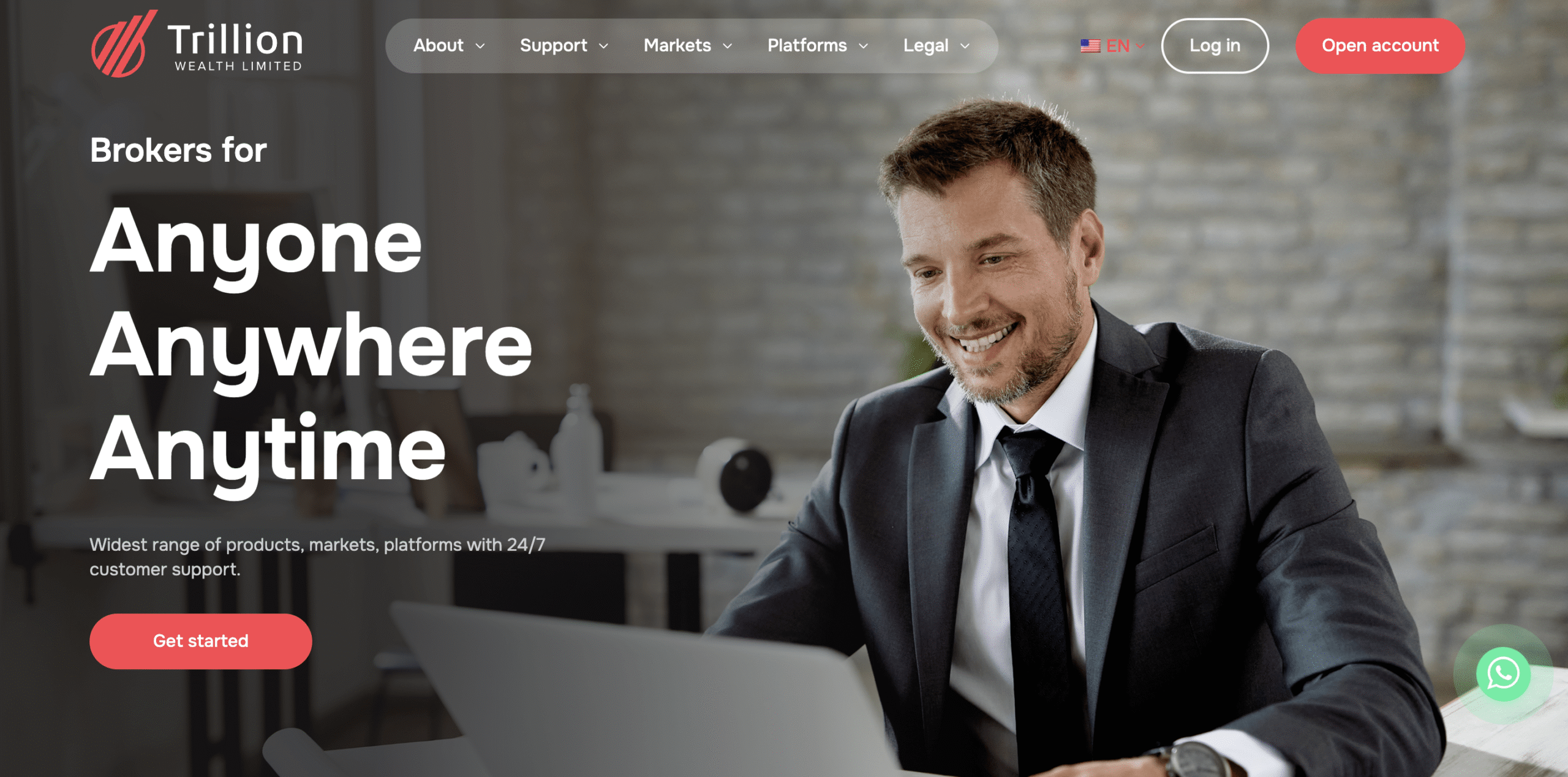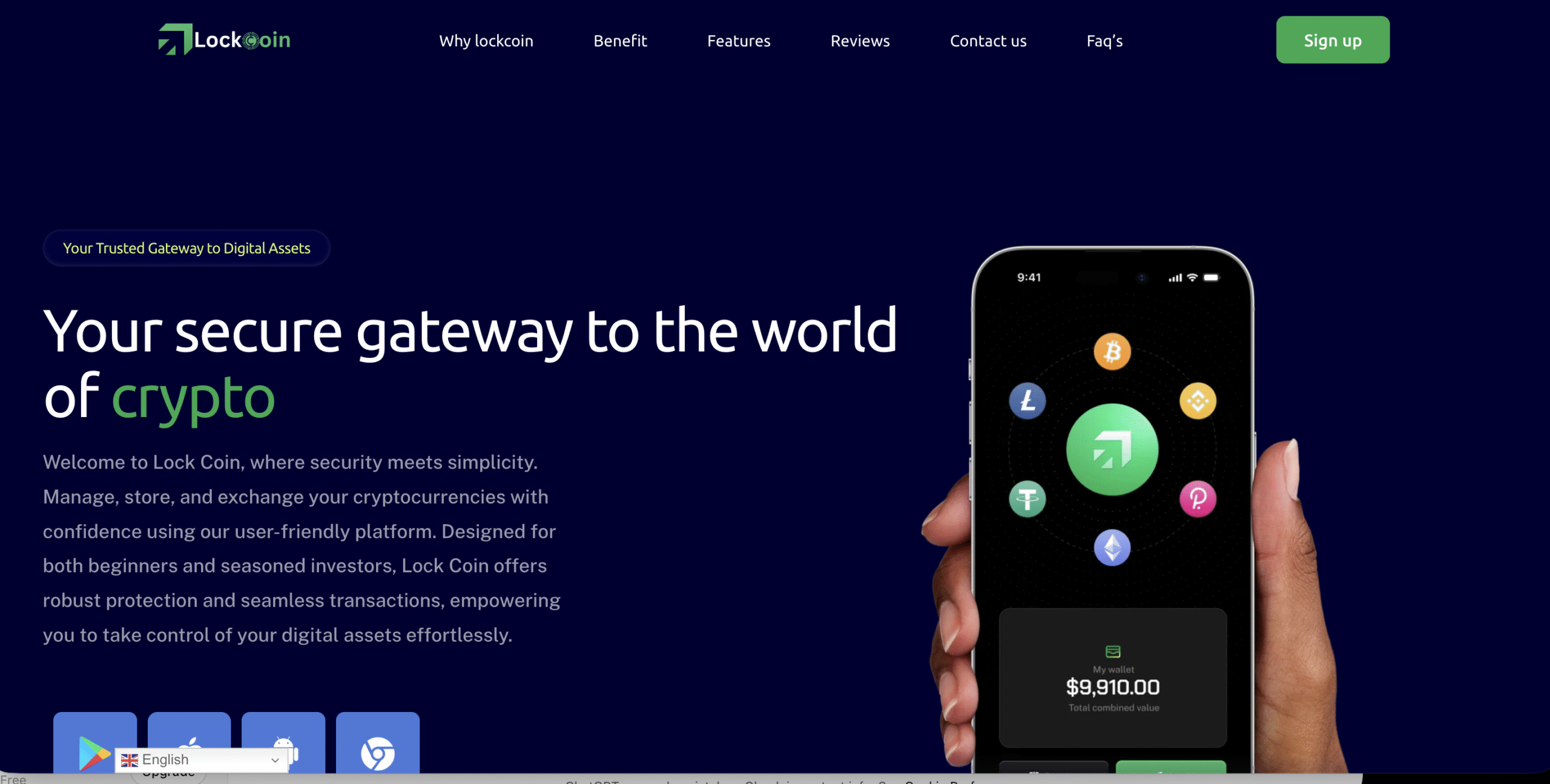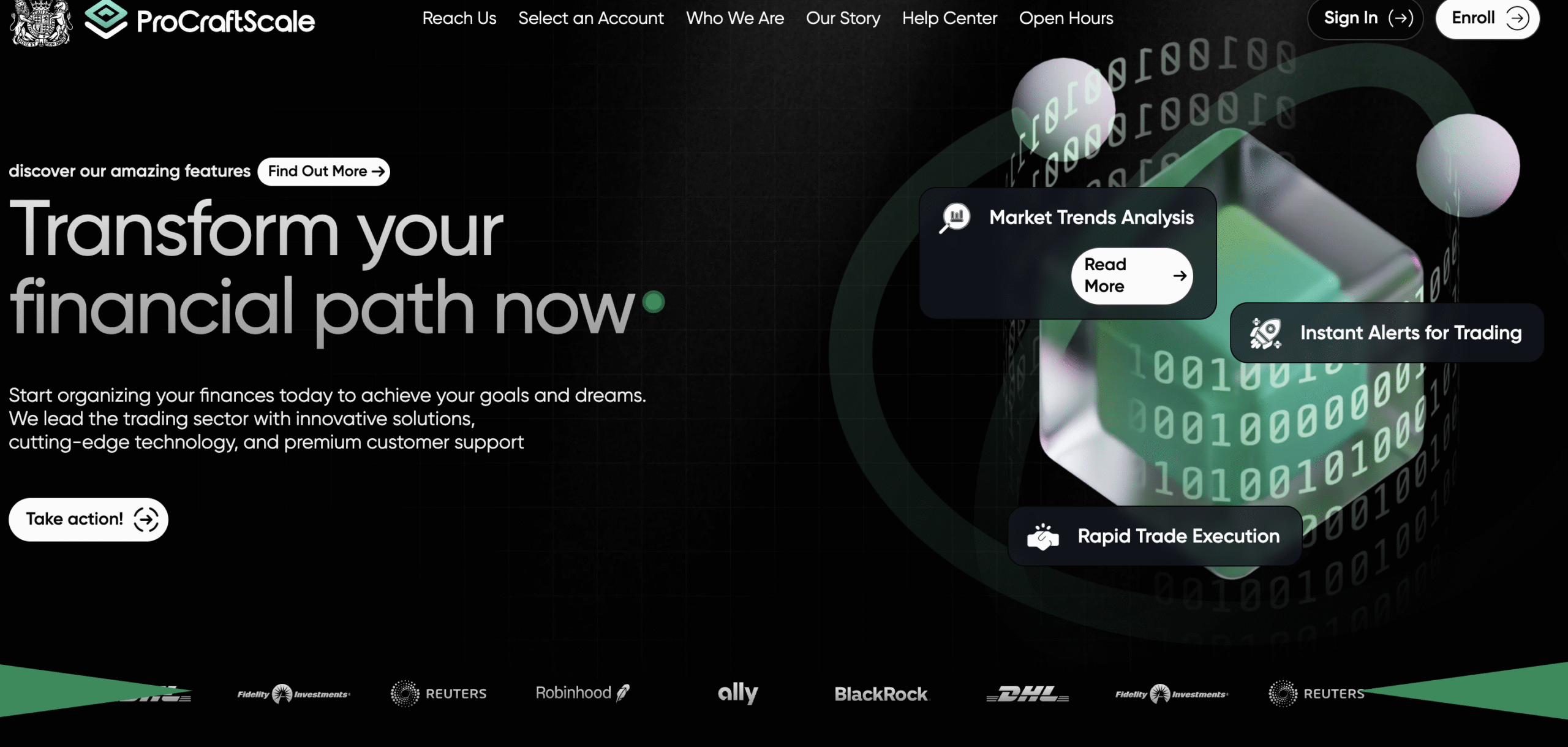The internet is filled with platforms promising easy profits through trading, crypto, or investments. One name that has surfaced frequently in recent months is TrillionW.com, also known as Trillion Wealth Limited. On the surface, the company presents itself as a global investment and wealth-management service. But beneath the glossy website lies a long list of red flags and inconsistencies that have led many experts and victims to label it a scam.
This detailed review exposes how the TrillionW.com scam operates, the psychological tactics it employs, and what you can learn from its methods to stay safe online.
There is a particular kind of silence that follows a financial mistake. It isn’t loud. It doesn’t announce itself. It arrives quietly—after the dashboard stops updating, after the emails go unanswered, after the “account manager” vanishes. It’s the moment when someone realizes that what looked like a gateway to growth was actually a corridor with no exit.
TrillionW.com lives in that silence.
The platform presents itself as a gateway to global markets, wealth management, and modern trading infrastructure. Its language is polished. Its interface feels familiar. It borrows the grammar of legitimacy: charts, certificates, disclaimers, jargon. Everything about it is engineered to feel normal. And that is precisely the problem.
This is not a story about an obvious fraud. It is about a system designed to look indistinguishable from real financial services until the moment it stops behaving like one.
The Shape of the Promise
TrillionW.com does not scream. It reassures.
The homepage is built around calm confidence—phrases about “stable growth,” “wealth planning,” and “global access.” It avoids cartoonish claims. Instead, it frames itself as a conservative, professional operation. A place where money is “managed,” not gambled.
This framing matters. Many modern investment traps fail not because their claims are extravagant, but because they are plausible. TrillionW does not promise overnight riches. It promises competence. Structure. Guidance.
Visitors are greeted with:
-
A branded corporate identity
-
Legal-looking documents
-
Charts suggesting historical performance
-
Testimonials written in restrained, professional tones
-
Mentions of “international operations” and “compliance standards”
Nothing appears chaotic. Nothing feels rushed. The platform does not behave like a con. It behaves like a firm.
And that is the hook.
Because in the real world of finance, legitimacy is not measured by appearance. It is measured by verifiability. And TrillionW offers almost none.
Where the System Breaks
A real investment platform exists inside a lattice of accountability. It can be located in registries. Its license can be checked. Its officers can be identified. Its operations intersect with banks, regulators, and legal frameworks.
TrillionW exists almost entirely inside its own interface.
Its documents refer to oversight bodies that cannot be cross-verified. Its corporate addresses resolve to virtual offices or unrelated businesses. Its leadership is invisible. The names attached to “executive” roles leave no professional footprint.
This is not a technical failure. It is architectural.
The platform is constructed so that every element that feels official remains isolated from anything that could be independently confirmed. It mimics the external skin of financial infrastructure while remaining detached from it.
The result is a closed loop:
-
Users deposit funds
-
The internal dashboard reflects activity
-
Profits appear
-
Account managers encourage engagement
-
The system references itself as proof
At no point does the user interact with an external market.
There is no broker API.
No exchange ledger.
No settlement confirmation.
No regulatory trail.
Only the interface.
Simulated Motion
What makes platforms like TrillionW so effective is not deception through lies—it is deception through motion.
The dashboard moves.
Numbers change.
Charts animate.
Trades appear to execute.
These signals are deeply persuasive. Humans interpret motion as activity and activity as authenticity. The system feels alive. And because it looks like other trading platforms, the mind fills in the gaps.
But the mechanics tell a different story.
Victims consistently describe a pattern:
-
Early “profits” appear quickly
-
Small withdrawals succeed
-
Communication is responsive and encouraging
-
Account managers propose higher-tier plans
-
Larger deposits unlock “enhanced performance”
-
Withdrawal requests slow
-
New requirements emerge
-
Fees appear
-
Accounts freeze
The early success is not an accident. It is a calibration.
The platform needs the user to cross a psychological threshold: belief. Once that happens, behavior changes. Risk tolerance expands. Doubt recedes. The system no longer feels experimental—it feels proven.
At that point, the interface does not need to deceive aggressively. It only needs to continue existing.
The Role of the “Advisor”
Every account on TrillionW.com is paired with a human voice. Sometimes by phone. Sometimes through messaging apps. The tone is always the same: calm, informed, reassuring.
These “advisors” do not push recklessly. They mirror the user’s pace. They praise caution. They frame decisions as collaborative.
This is not random.
The human layer is there to replace skepticism with rapport.
When a user hesitates, the advisor reframes:
“Let’s start small.”
“Test the system.”
“You remain in control.”
When profits appear, the advisor contextualizes:
“This is what consistency looks like.”
“Imagine this at scale.”
When withdrawals slow, the advisor stabilizes:
“Compliance review.”
“Routine verification.”
“Temporary system load.”
Every interaction is designed to preserve narrative continuity.
The user is never told “no.”
They are told “not yet.”
And “not yet” keeps money inside the system.
Structural Weaknesses You Can Verify Independently
You do not need insider access to evaluate whether a platform like TrillionW.com is connected to real financial infrastructure. You need only know what real infrastructure looks like.
A legitimate broker can be:
-
Located in a regulatory database
-
Matched to a license number
-
Connected to an identifiable legal entity
-
Traced through corporate records
-
Confirmed by independent oversight bodies
There is a clear methodology for evaluating these elements in practice. A step-by-step breakdown is available in this guide on how to verify online investment platforms, which walks through domain analysis, regulatory lookup, and corporate verification using publicly accessible tools.
Once you understand how these systems are supposed to interlock, the absence becomes visible.
A real platform is embedded.
A simulated one is sealed.
The Economics That Don’t Exist
Markets are chaotic. Returns fluctuate. Even the best-performing funds experience drawdowns. Risk is not an accessory—it is the engine.
TrillionW.com removes risk from the narrative.
Its structure implies:
-
Controlled growth
-
Predictable performance
-
Managed exposure
-
Consistent outcomes
These are comforting ideas. They are also incompatible with market reality.
No legitimate investment mechanism produces steady, directional gains without variance. That pattern only exists in two environments:
-
Internal accounting systems
-
Closed financial loops
In both cases, numbers are not earned. They are assigned.
This is why the platform can display growth independent of any external condition. It is not reflecting markets. It is reflecting intention.
The interface does not show volatility because there is nothing volatile behind it.
The Psychology of Staying
Many victims describe the same moment:
They sense something is wrong. But they do not leave.
Not immediately.
Because departure requires admitting that the system was never real. And that admission carries weight—financial, emotional, social.
Some users recruited friends.
Some borrowed funds.
Some reinvested earnings.
Leaving is not just an action. It is a reversal of identity.
The platform exploits this.
Withdrawal friction increases slowly. Each obstacle feels procedural. Each delay seems explainable. The system does not collapse; it erodes.
This gradual decay keeps users engaged long after rational confidence has weakened.
They are no longer investing.
They are waiting.
When the Loop Breaks
Eventually, the pattern ends.
The advisor stops responding.
The platform stops processing requests.
The interface still loads—but nothing moves.
At this stage, many users search for guidance. Not emotionally. Procedurally.
They want to know:
-
What can still be documented
-
Which records matter
-
What channels remain available
-
Whether anything can be reconstructed
There is a structured approach to this phase. The resource on what to do after a financial deception outlines how to preserve transaction histories, communication logs, and platform evidence in a way that retains coherence even after access is lost.
This step does not undo what happened. But it prevents the narrative from dissolving.
The Broader Pattern
TrillionW.com is not unique.
It belongs to a class of platforms that operate on the same blueprint:
-
Polished interface
-
Synthetic performance
-
Human intermediaries
-
Gradual withdrawal obstruction
-
Eventual disappearance
When one name becomes compromised, another appears. The template remains. The branding changes.
This is why familiarity is dangerous.
A user who avoids “TrillionW” by name but not by structure will encounter its twin under a different banner.
The lesson is not about this platform.
It is about recognizing architecture.
Why TrillionW.com Warnings Fail to Spread
One of the most frustrating elements of these systems is that they remain effective even when information is available.
Why?
Because most people encounter a platform before they search for it.
They arrive through:
-
Direct messages
-
Referral links
-
Private groups
-
Paid social ads
-
Personal recommendations
By the time a search occurs, a psychological frame has already formed. The platform is no longer unknown—it is “the place my colleague uses” or “the system that just paid me $120.”
At that point, contradictory information feels abstract.
The mind doesn’t ask, “Is this real?”
It asks, “Why are these people wrong?”
The interface reinforces that question every time it loads.
The Technical Tells
While the emotional architecture varies, the technical fingerprints are remarkably consistent.
Across similar platforms, analysts observe:
-
Recently registered domains with short operational lifespans
-
Ownership masked through privacy services
-
Identical JavaScript frameworks across unrelated brands
-
Reused legal documents with altered names
-
The same dashboard logic under different skins
-
Hosting clusters tied to transient infrastructure providers
These are not coincidences.
They reflect a production pipeline.
The system is modular.
Branding is superficial.
Operations are centralized.
Each “company” is a wrapper.
What Real Due Diligence Looks Like
The word “research” is often misused. Many users believe they have done it because they read the homepage and skimmed a PDF.
But real due diligence is mechanical.
It does not ask, “Does this sound professional?”
It asks, “Where does this live in the world?”
A functional evaluation includes:
-
Locating the platform in a regulatory database
-
Matching license numbers to legal entities
-
Verifying addresses against corporate registries
-
Searching for leadership in professional networks
-
Comparing document language across unrelated sites
-
Inspecting domain history and hosting patterns
This process is unemotional. It does not care how convincing the site feels.
It either connects to a real financial system—or it doesn’t.
Why These Systems Persist
Platforms like TrillionW.com thrive because they occupy a gap between:
-
Technical sophistication
-
Financial literacy
-
Regulatory reach
They exploit the fact that modern finance is abstract. Most users never interact with clearinghouses, custodians, or regulators. They interact with interfaces.
And interfaces can be fabricated.
The illusion holds because it mimics what users already expect. Charts. Dashboards. Advisors. Documents. Progress bars. These are the visual language of finance.
The system does not need to invent credibility.
It only needs to echo it.
The End of the Corridor
Every synthetic platform eventually reaches the same point.
Not collapse.
Silence.
The site may still load.
The interface may still animate.
But nothing moves forward.
Support becomes asynchronous.
Requests become “pending.”
Processes become “under review.”
Users remain inside a corridor that no longer leads anywhere.
There is no announcement.
No closure.
No conclusion.
Just an interface that stopped answering.
And that is the architecture.
Not a theft in one motion.
A withdrawal of reality.
The platform does not vanish.
It becomes hollow.
And those still inside must decide whether to keep waiting for motion—or step out into a world where numbers only exist when they can be traced.



